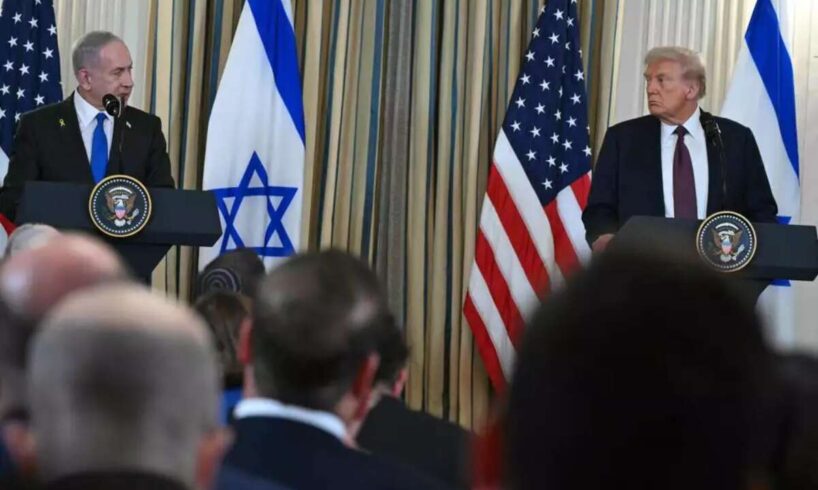
If the “20-Point Plan,” as published tonight by the White House, is implemented word for word, it would be acceptable to Israel.
This has been a brutal war, dragging on for two years. The Israel Defense Forces, especially reserve soldiers and their families, the bereaved, and the wounded, have given everything and more. The Iranian axis has been crippled, the nuclear threat pushed back, and the Islamic Republic is licking its wounds. There are 20 hostages still alive and 28 bodies that must be brought home.
It is not a perfect outcome, certainly not the absolute victory Prime Minister Benjamin Netanyahu promised. There is a real concern that Hamas will remain active underground in Gaza. But this may be the maximum Israel can achieve under the current circumstances. Even the problematic clauses referencing the Palestinian Authority and a “Palestinian state” are unlikely to materialize in practice. Israel can live with the text.
The key question now is whether Washington’s lofty promises will be carried out on the ground. Will Hamas agree to the deal and release our hostages? Will it disarm? Will it stay out of power? Will there be true de-Hamasization? Will the international force prevent Gaza from again becoming a base of terror against Israel? Will it root out the hatred and incitement among Gazans in the first phase?
Netanyahu and Trump at the entrance to the White House. Photo: AP
The truth is, it is hard to believe. Just as in Lebanon, where Israel continues to face threats from Hezbollah despite international agreements, it is almost certain that terrorism will continue to simmer in Gaza. The top lesson of the October massacre is not to allow threats to grow unchecked. Israel’s test will be to remain vigilant, even toward the international force managing Gaza. This will be an existential test.
Ultimately, this middling result is Netanyahu’s doing from start to finish. He allowed Hamas to grow into a murderous monster under his watch. He failed to draw the right conclusions from repeated operations in Gaza during his long tenure. He fell into the strategic trap set by [Hamas leader Yahya] Sinwar.
Over the course of the war, Netanyahu did learn one lesson: he turned Israel into the bully of the Middle East and improved its strategic balance. Israel is far stronger than its enemies. Still, Hamas should have been destroyed completely—which did not happen. That failure is also on him. He led the war and was right to refuse to end it prematurely, before addressing Iran and Hezbollah, with the added “bonus” of toppling [Syrian President Bashar] Assad.
And yet, none of this should have been necessary. Sound policies toward Gaza during the two decades of Netanyahu’s leadership could have prevented the catastrophe of the past two years.
One of Netanyahu’s gravest mistakes, which cost him dearly, was accepting money from Qatar. Qatar has hosted Hamas, funded it, runs Al Jazeera, bankrolls anti-Israel influencers on social media, pays “researchers” in American academia who delegitimize Israel, and has never expressed remorse for its role in the massacre.
Qatar’s Prime Minister, Mohammed bin Abdulrahman bin Jassim Al Thani AFP
It was Netanyahu who brought Qatar’s dirty money into Gaza, fueling Hamas’ military buildup and, in the end, the massacre. Then and now, instead of taking a moral stand, he continued to flirt with the very country that undermines Israel’s legitimacy and does so even during wartime. Qatar should have been apologizing to Israel, not the other way around.
The sages taught: “Along the path a person chooses to walk, he is led.” Netanyahu led Israel into this war, and now, it seems, toward its conclusion.
That “seems” is crucial. The real test will be in implementation. While tonight’s declaration of the war’s end is emotional, Israel cannot rely on Hamas terrorists. Fierce fighting may well still await us.





